Know Your Status with Free HIV Testing on National HIV Testing Day June 27
Posted June 9, 2022 by Michael Hokanson
Each year, June 27 is recognized as National HIV Testing Day. On this day, public health, healthcare providers and community organizations across the nation raise awareness about the importance of regular HIV testing and stress the significance of early HIV diagnosis.
This year, North Central Health District’s (NCHD) is partnering with Walgreens and Greater Than AIDS to provide free rapid HIV testing at three pharmacies in Macon. The following Walgreens locations will host NCHD testing Monday, June 27, from 10 a.m. to 7 p.m.:
- Walgreens #6560 – 3888 Vineville Ave., Macon, GA 31204
- Walgreens #6950 – 1280 Gray Hwy., Macon, GA 31211
- Walgreens #7229 – 4305 Mercer University Dr., Macon, GA 31206
“One of the best methods for preventing serious outcomes of HIV is early detection,” said NCHD HIV Linkage Coordinator Sydney Sanders. “When HIV is caught early, that person can begin receiving support early. National HIV Testing Day provides a great opportunity for anyone to get tested and learn their status.”
Rapid testing provided by NCHD at the pharmacies can provide results in under 10 minutes. Anyone that tests positive will be linked to treatment and support services.
District residents unable to visit any of the three pharmacies are encouraged to visit their local county health department on June 27. Each of NCHD’s 13 county health departments will be participating in National HIV Testing Day by offering free HIV testing during business hours. To find your nearest health department, visit NCHD52.org/Locations.
At the end of 2019, there were nearly 1.2 million people in the United States people living with diagnosed HIV. In Georgia, over 58,600 were living with HIV. While testing for HIV is available through public health and other healthcare providers, nearly 1 in 5 people living with HIV do not know they are infected. The only want to know if you have HIV is to get tested.
HIV, or human immunodeficiency virus, is a virus spread through the exchange of certain body fluids. HIV can be transmitted via sexual contact, sharing needles used to inject drugs or by a mother to her child during pregnancy, birth or breastfeeding. When the virus enters a person’s body, it attacks the immune system, decreasing the body’s ability to fight off diseases and infections. If HIV goes untreated, it can continue to damage the immune system and eventually lead to acquired immune deficiency syndrome (AIDS), the final stage of HIV.
While there is no cure for HIV, there are ways to reduce the risk of infection. Using condoms properly every time during sexual contact and decreasing the number of sexual partners can reduce the chance of infection. A person who avoids injecting drugs has a lower HIV risk than a person who uses needles. People who inject drugs can reduce their risk of HIV infection by not sharing needles. If a person is at high risk for HIV, he or she should talk to a healthcare provider about pre-exposure prophylaxis (PrEP), which can help prevent the transmission of HIV. Everyone at risk of HIV infection is advised to get tested for the virus on a regular basis.
NCHD is committed to fighting the spread of HIV and other sexually transmitted diseases (STD) in the community. In addition to providing HIV and STD testing, each of NCHD’s 13 county health departments offers STD treatment and education. In addition, NCHD’s Ryan White-funded HOPE Center helps those living with HIV/AIDS through peer counseling, medical services and referrals to third-party services for additional client needs. All services are completely confidential and administered by our expert team of licensed nurses and counselors. For more information about NCHD’s HIV and STD services, visit NCHD52.org/STD.
For more information on HIV, visit cdc.gov/HIV.



 Contact Us
Contact Us Locations
Locations Job Openings at North Central Health District
Job Openings at North Central Health District Internships
Internships Board of Health
Board of Health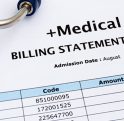 Cost and Insurance
Cost and Insurance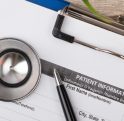 Privacy Policy
Privacy Policy Teens & Adults
Teens & Adults For Children
For Children Other Programs
Other Programs County Environmental Health Offices
County Environmental Health Offices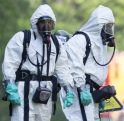 Chemical Hazards
Chemical Hazards Tourist Accommodations
Tourist Accommodations Food Service
Food Service Rabies Control
Rabies Control Lead Poisoning Prevention
Lead Poisoning Prevention Body Art
Body Art Land Use
Land Use Swimming Pool Program
Swimming Pool Program Water Testing for Private Wells
Water Testing for Private Wells Environmental Health Complaints
Environmental Health Complaints Georgia Food Recall Alerts
Georgia Food Recall Alerts Personal & Family Preparedness
Personal & Family Preparedness Emergency Preparedness for Functional & Access Needs
Emergency Preparedness for Functional & Access Needs Severe Weather Preparedness
Severe Weather Preparedness Emergency Preparedness Training
Emergency Preparedness Training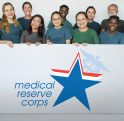 Medical Reserve Corps
Medical Reserve Corps Regional Healthcare Coalitions
Regional Healthcare Coalitions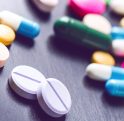 Strategic National Stockpile/Medical Countermeasures
Strategic National Stockpile/Medical Countermeasures